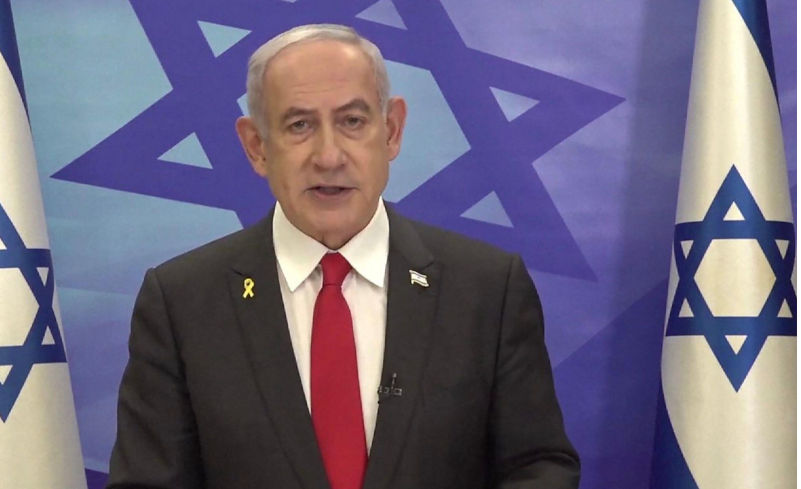The Liberal Party and Israel
September 9, 2025
The Liberal Party is correct in claiming Australia’s relations with Israel are at their lowest point ever. The real questions to be asked are: who is responsible, and how much does it matter?
Shortly after the Hamas attacks of October 2023, President Biden cautioned Israel against overreacting in their response. At that stage, few anticipated the scale of the Israeli carnage in Gaza or the extent to which this would galvanise global protests by millions of people who had never been involved in the issue. If Australian relations with Israel are declining, this is because the government has, slowly, and it seems reluctantly, followed public opinion. The long-term damage to Israel’s reputation is enormous and clearly ignored by the Netanyahu Government, whose language becomes increasingly strident as support for them declines both at home and abroad.
The images of mass devastation in Gaza and increasing settler violence on the West Bank mock Israel’s claim of being a fellow democratic society. Yes, within the borders of Israel, there is a functioning (if imperfect), democratic system – even The Economist Democracy Index rates Israel as a “flawed democracy”. But Israel effectively controls the lives of seven million Palestinians on the West Bank and Gaza who lack the rights of Israeli citizens. Whether we term this apartheid or not, it undermines any claim that Israel is a genuine democracy. Meanwhile, within Israel itself, there is mounting pressure to reduce the rights of non-Jewish citizens, despite Arab Palestinians making up 20% of the country’s population.
Netanyahu claims to be “fighting a war on behalf of Western civilisation”, but in reality, he is defending an ethno-nationalist state – one that stands in stark contrast to the values most Australians associate with multiculturalism. It is not surprising that Israel counts among its supporters leaders like Hungary’s Viktor Orban and India’s Narendra Modi, whose own politics emphasise forms of ethno-nationalism.
The current conflict, indeed, is one in which Australia can only play a minor role. I understand why some people question the lack of equivalent moral outrage over the crises in Sudan, the Democratic Republic of the Congo, and Myanmar. The key difference is that, in those conflicts, there are no influential Australian political or media figures supporting the forces responsible for mass murder and repression.
Hard-nosed realists on the right would argue that even if all this is true, it is in Australia’s interests to ally with the US in support of Israel, as if echoing their position would transport Albanese to the inner sanctums of Mar-a-Lago. The fact that Foreign Minister Wong has carefully aligned Australia with the vast majority of Western states — Britain, France, Canada, Germany, Spain — seems of no interest to the Liberal Party.
In the Weekend Australian [August 23-4], it was argued that Australia must protect a “crucial friendship”. Certainly, there are certain areas of technology and surveillance where Israel might be of use. But Israel matters far less to Australia than the major countries of our region. It’s puzzling that so little of the debate has considered how our position on Israel might play out in Indonesia and Malaysia.
Symbolic though it may be, recognition of a Palestinian state remains a vital step in rejecting Israel’s clear aim of exerting permanent control over the entire territory. This project has involved dispossession and de facto ethnic cleansing in the West Bank. I have attended several pro-Palestinian rallies and am struck by the gap between many of the speakers and the people who turn up, increasingly in tens of thousands. To hear such recognition dismissed, as I did last Sunday in Melbourne, is to despair at the Palestinian movement’s ability to build broader public support. A two-state solution may now be close to impossible – but this is primarily due to the actions of Israel, not those advocating for recognition. [see The US can end the Gaza genocide now | Pearls and Irritations].
Any settlement of the Palestinian-Israeli conflict requires an acceptance on both sides that there is now a roughly equal number of both peoples occupying the disputed land, and Israel, as the dominant power, needs to find ways to allow for Palestinian equality.
I am distressed by Jewish voices that put their tribal loyalty above any acknowledgement of the fundamental injustice of Israeli policy. Something is unnerving about seeing people sitting in comfort in Australia denying the evidence of carnage and starvation in Gaza or linking criticism of Israel to support for Hamas.
Antisemitism is real and, yes, it is increasingly violent across the Western world, but as Rachel Shabi has pointed out in her book Off White, antisemitism often co-exists surprisingly easily with support for Israel, usually alongside deep Islamophobia. Netanyahu’s claim that Australian support for Palestine is fuelling antisemitism is just wrong. If anything, it is his insistence that the Jewish Diaspora must support every action of his violent and oppressive regime that is fuelling antisemitism.
The Liberal Party has badly misread both the situation in Palestine and the shifts in Australian public opinion. Fellow conservatives, such as the leaders of Canada, Germany and New Zealand, can move away from unconditional support for Israel. Why is it so difficult for a party whose leader once chaired the Parliamentary Friends of Palestine?
Republished from Australian Institute of International Affairs, 3 September 2025
The views expressed in this article may or may not reflect those of Pearls and Irritations.


